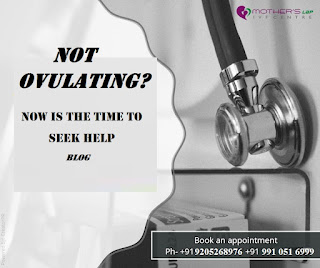About half of women with infertility have what are known as ovulatory disorders. Often physicians and healthcare literature will say that these disorders are easy to treat. The better thing to say is that there are treatments that are very effective in treating ovulatory disorders.
Pinpointing a couple’s obstacles to conceiving and
designing treatment plans that are tailored to each patient are the keys to
that success.
Let's know first that What are ovulatory disorders?
For women who are not ovulating regularly, the cause is usually that the ovary is not receiving the appropriately timed signals to mature and release an egg. The pituitary gland, at the base of the brain, produces the hormones that control the ovaries – FSH (follicle stimulating hormone) and LH (luteinizing hormone). If ovulation is not occurring in a regular, timed fashion, it is likely that the ovaries and the pituitary are not communicating appropriately.
Ovulatory disorders broadly break down into two groups:
anovulation – where no ovulation at all occurs; and oligo-ovulation – where
ovulation occurs infrequently or irregularly.
Polycystic Ovarian Syndrome (PCOS) is the most
common cause of anovulation and oligo-ovulation. PCOS can prevent women from ovulating,
but can also cause a number of additional symptoms such as small cysts in the
ovaries, obesity, and unwanted facial hair.
Any woman with an ovulatory disorder, regardless of the type, should seek


